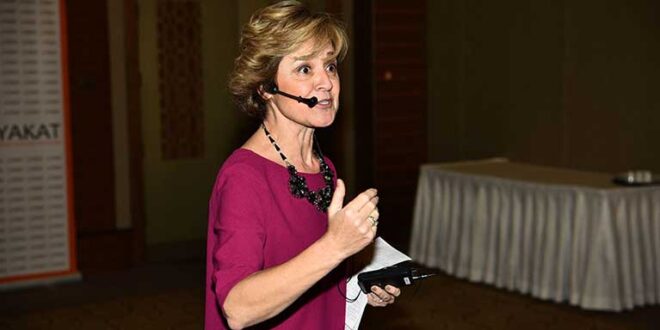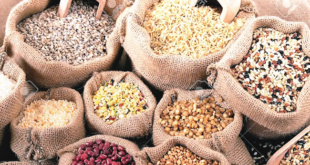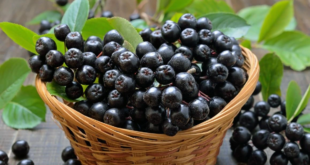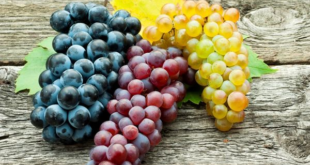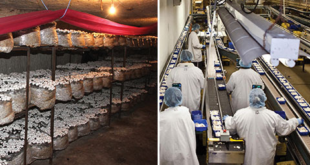Do women contribute to the global economy? How is the perception of women in agriculture? These two important questions have always been on my mind for the last two years. Not only what I see, but every article I read attracts me to focus on the subject from a different perspective.
The invisible labor of women in agriculture is the most intensely used labor today, from production to consumption. HOW TO MAKE INVISIBLE LABOR visible? It is possible to say that women are the accumulative, protective and developing brains of agricultural production thanks to their characteristics such as having a central role in food selection, production, cultivation, preparation and harvest, keeping and protecting seeds, having knowledge about animal production and breeding, and providing biodiversity.
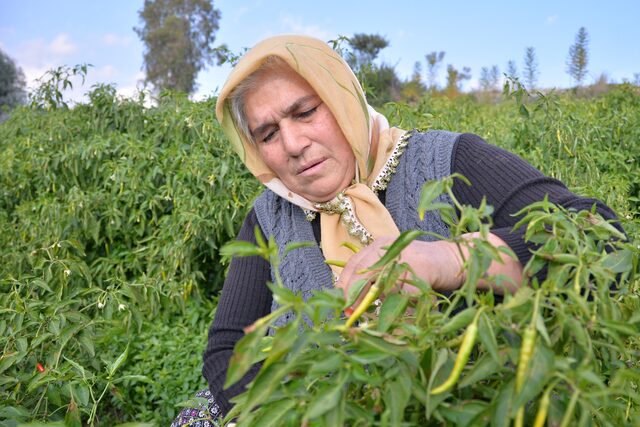
How many people know or take into account the problems of women in agriculture, which have such an important role? As in Turkey, the world’s agricultural sector in many countries is to survive by small-scale family businesses. Naturally, a large part of the rural female workforce works as “unpaid family workers”. Therefore, they can identify themselves as neither farmers nor women of the house. This is a complex problem.
In many countries, female farmers experience more disadvantages than their male counterparts due to “gender discrimination”. Since they do not own property in order to borrow money or borrow money, they cannot show their existing effects in agriculture.
Although women in developing countries represent 43% of the agricultural workforce, they exercise significantly less power than men in the sector. Whereas, if they were given the same opportunities and access to production resources as men, that is, without gender discrimination, women could increase the yield on their farms by 20-30%, which could be enough to feed an additional 150 million people.
“Being a successful female farmer” is all about TRUST. According to a study by the Food and Agriculture Organization, women do not report that they engage in agriculture as often as men. The agricultural sector is actually in the hands of women, but men who do the marketing and control the money. Women are victims not only in their own fields but also in places where they work as seasonal workers. According to TURKSTAT’s “agricultural enterprises (household) wage structure” statistics for 2019, the daily wages of seasonal female workers increased by 17.9 percent to 79 TL, and male workers increased by 14.9 percent to 94 TL. Monthly wages paid to permanent agricultural workers increased by 22.4 percent to 2 thousand 41 TL for female workers and to 2 thousand 486 TL for male workers with an increase of 13.7 percent.
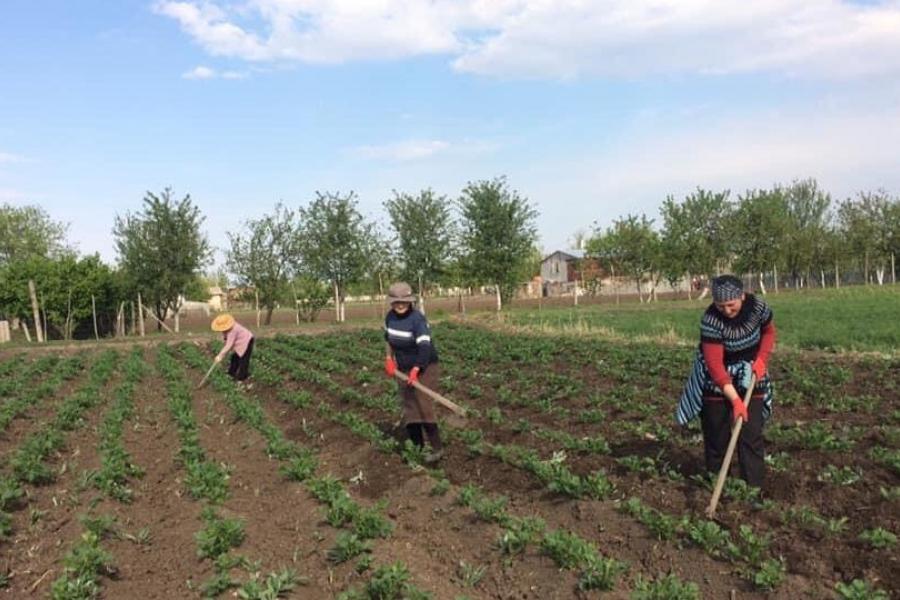
When we look at Turkey’s balance of work-related accidents in 2015, it appears that the vast majority of deaths were in the agricultural sector. 349 agricultural workers died in the first ten months of the same year. 18% of these workers are women. At least 62 of those who died due to lightning strikes, tractor overturning, bad conditions during transportation to the field (being stuck between trucks, traffic accidents, etc.) are women.
EDUCATION is one of the most important factors affecting women’s participation in real employment in rural areas, both their entrepreneurship and social status. It is important to raise awareness of the society by cooperating with all institutions and organizations and non-governmental organizations in order to reduce the effect of common beliefs, customs and traditions that prevent the education of women in society. It shows us that we will not reach the sustainable development goal, which is a prerequisite for the growth of healthy generations, especially after Covid 19, without our women and girls.
It should not be forgotten an important issue. Women working in agriculture have difficulty in joining the labor force when they go out of agriculture / or migrate. The women participating in the workforce, on the other hand, work in jobs with lower status and in unqualified jobs without any security. This causes the woman to be excluded from working and social life. For this reason, improving the working and living conditions of women in agriculture is important for both sustainable agriculture and gender-based development principles.
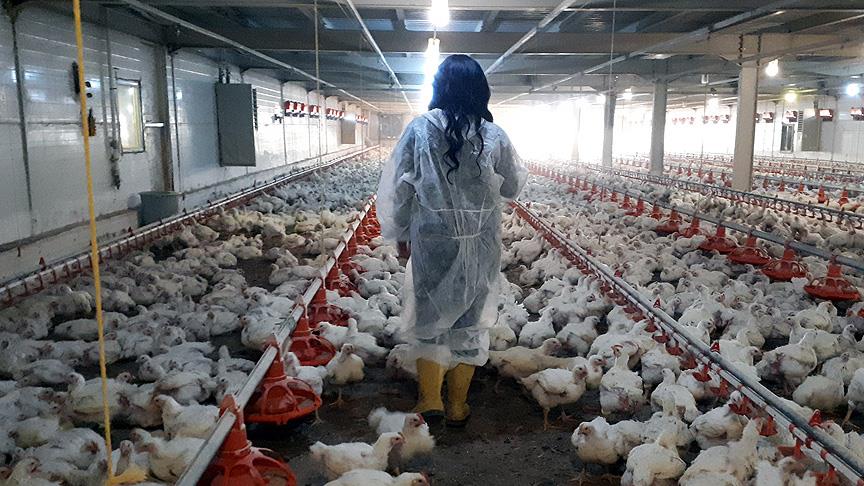
The “Women’s Workshop” held by the Ministry in 1 national and 9 regions in rural areas between 2012-2016 is a very remarkable study. Within the scope of the National Action Plan, in order to increase the knowledge and skills of “women farmers” in every stage of the agricultural production process, to carry out sustainable agricultural activities and to increase quality products; Trainings have been initiated in 81 provinces by using various publishing techniques in many subjects ranging from viticulture, livestock, fruit growing to greenhouse cultivation, beekeeping to silkworm cultivation.
It is not known what has changed since then, how effective the program has been, but the trainings especially; I believe that it may have been very useful for women in their personal development, in their knowledge of health and hygiene conditions, in seeing how they contribute to the family economy, in adopting themselves as an actor of agricultural production, and in increasing their entrepreneurship and marketing skills.
Technology is indispensable nowadays, which is mentioned in Agriculture 4.0. Women men and women need to be equipped with up-to-date farming skills. For the future of farming, they should have sufficient knowledge in terms of DATA INTERPRETATION as well as basic points such as plants, soil, and water. New changes in technology will enable women to move more flexibly by easing their labor-intensive pace. For this reason, women farmers who receive “digital literacy” training will have more say in agriculture and will be able to use their decisions and powers more easily.
Finally, I want to tell women farmers that I trust in the field of agriculture. Because they have a “mother” sensitivity to the use of “natural resources” in the countryside. When women are given trainings on this subject and when they take responsibility, they will use our resources more effectively, efficiently and consciously. Let’s not forget that; With each passing day, we are becoming a country that is condemned to thirst and our lands are getting dirty. We will not be able to do agriculture, but even protect our food security. This country is ours and all of us. Agriculture and food are the only strategic issues that will make a country self-sufficient. It is an important resource that cannot be left to the lack of imagination of only men and conservatives (those who do not think to switch to data-based agriculture, not experience).
By Professor Dr. Meltem Onay
Vice Rector
15 November Cyprus University
 THE GLOBAL WINDOW OF TURKISH FOOD AND AGRICULTURE The Global Window of Turkish Food and Agriculture Sector
THE GLOBAL WINDOW OF TURKISH FOOD AND AGRICULTURE The Global Window of Turkish Food and Agriculture Sector


